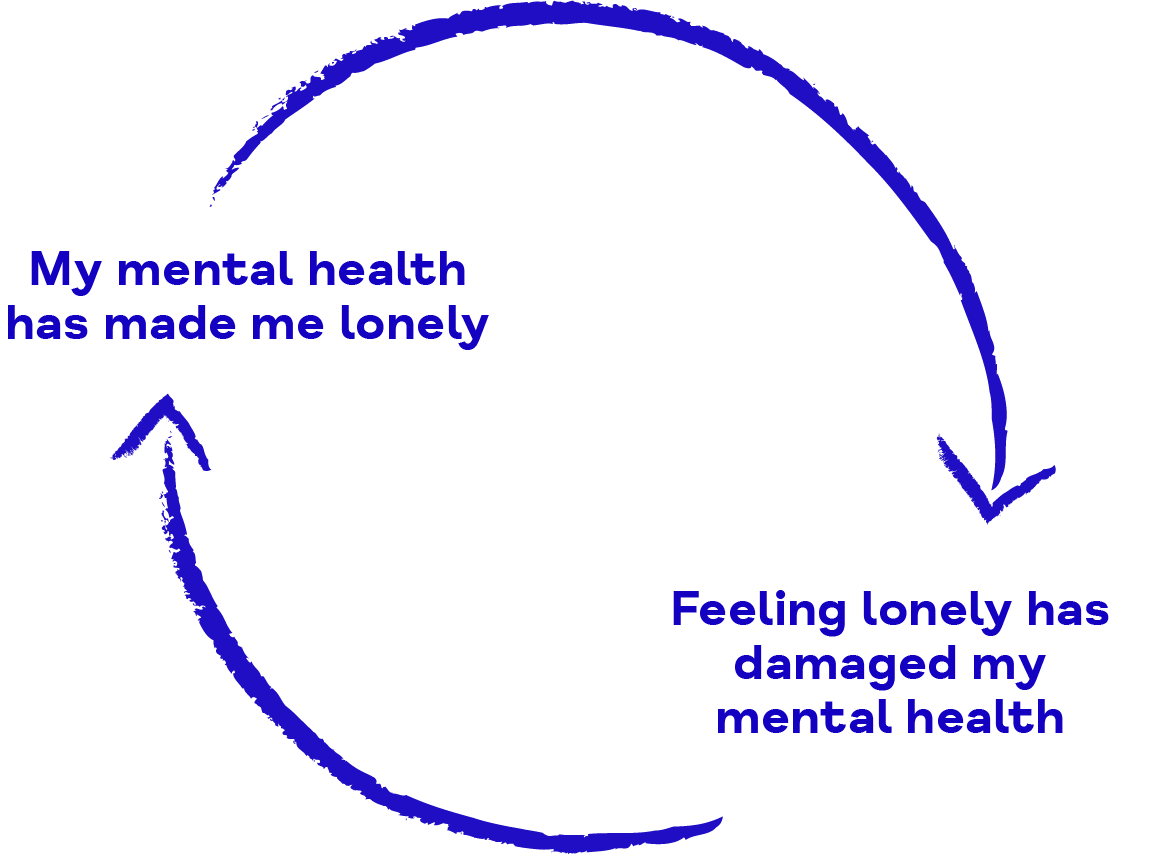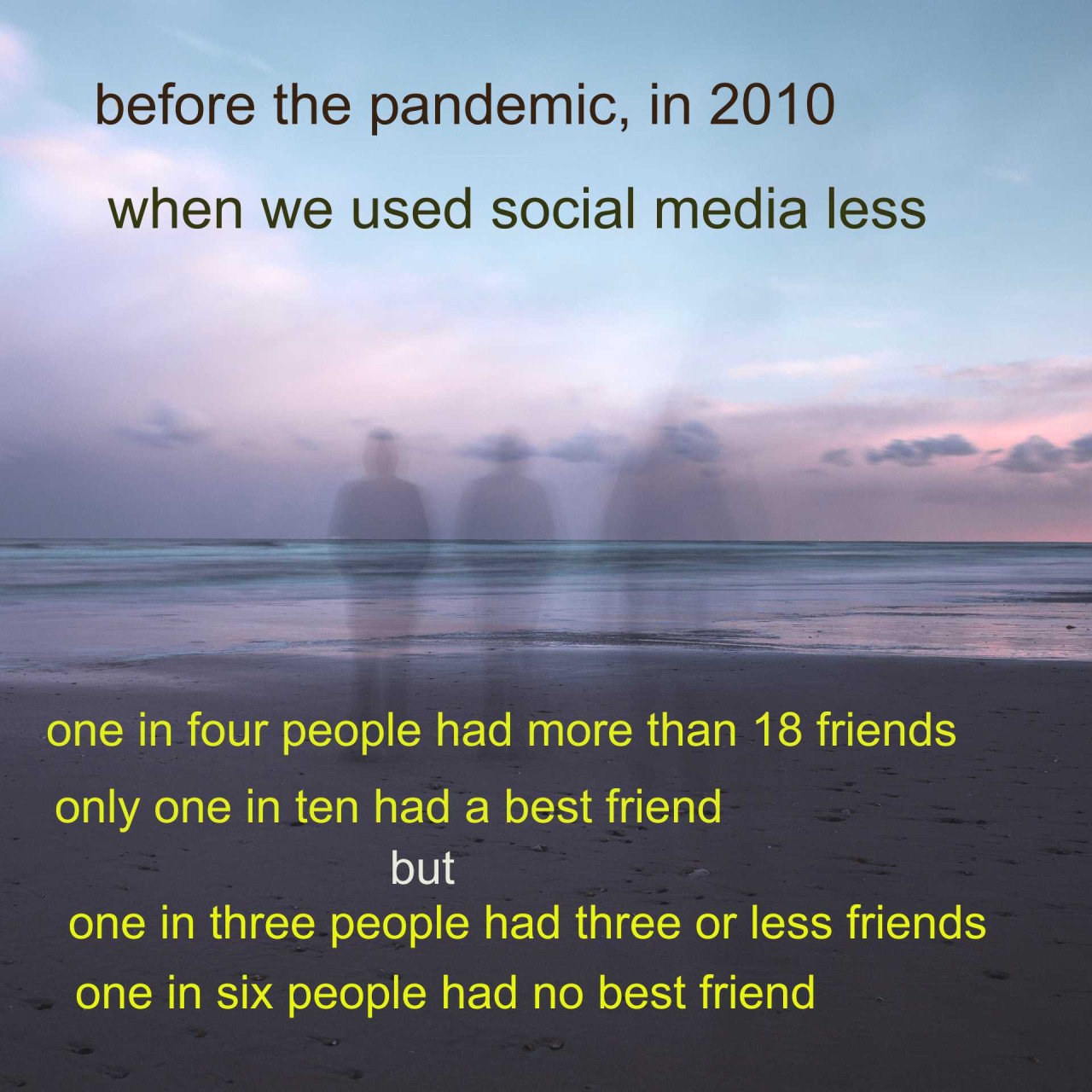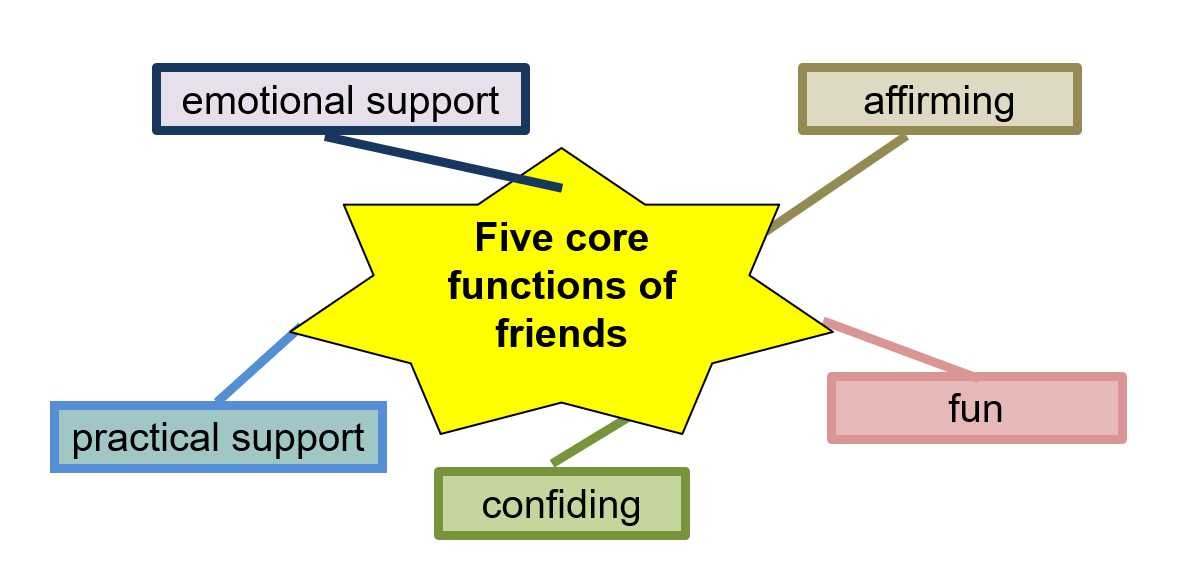Mental Health loneliness week 2022
What is loneliness ?
National Mind say that "we all feel lonely from time to time. Feelings of loneliness are personal, so everyone's experience of loneliness will be different". Feeling lonely isn't in itself a mental health problem, but the two are strongly linked. Having a mental health problem can increase your chance of feeling lonely.
The most widely used definition of loneliness was produced by Daniel Perlman and Letitia Anne Peplau in 1981: `loneliness is the unpleasant experience that occurs when a person's network of social relations is deficient in some important way, either quantitatively or qualitatively'.
So it feels unpleasant and is the consequence of being isolated from other people important to you.
National Mind make it clear by their loneliness cycle: feeling lonely can have a negative impact on your mental health. Do check out their website. https://www.mind.org.uk/information-support/tips-for-everyday-living/loneliness/about-loneliness/
Photo by Sasha Freemind on Unsplash
People can be alone but not lonely, particularly when they choose to be alone.
Loneliness appears when you are or you perceive to be disconnected from people who are special or "of value" to you.
That disconnection triggers discomfort – a low intensity feeling of anxious unease. It usually comes with other unpleasant emotions, such as sadness, emptiness, desperation, grief, hopelessness, and depression.
To be sensitive to early signs of loneliness, try and separate out being alone (aloneness or solitude) to unpleasant experiences of loneliness. They are different.
Photo by Forest Simon on Unsplash
Most people have encountered it at some point in their life.
- parents cannot stay with their babies all the time.
- children leave their families for schools.
- young people start new jobs,
- adults marry and divorce.
- older people retire and die.
- people move from one place to another.
- new members join or leave a family, a company, or an informal group.
There is no way to escape from the risk of loneliness. As long as human beings live in densely packed social relationships, parts of those social relationship will sooner or later end.
Relationship breakdowns is the most common trigger of poor Mental Health.
To build your resilience to loneliness, be alert when you are alone during the day. Then take that experience a little further.
Photo by Joshua Oluwagbemiga on Unsplash
How easy is it to be alone ?
Go into the bathroom; lock the door, take a shower. You are alone.
Try being alone, actively experience solitude for a while: an experience where you are remote from human society.You chose to be alone.
If you can tolerate solitude in the shower - have a bath instead: it takes longer, and because it is quieter it is easier to be aware of being alone.
Build up various strategies for being alone, starting with the least threatening and most pleasurable ones you can imagine.
Become more aware of moments of solitude and how they make you feel.
I recommend reading the book How to be alone by Sarah Maitland for more information.
Photo by Joeyy Lee on Unsplash
In his article `How should we tackle the loneliness epidemic?', Mark Easton, the BBC's home editor, began with the following observation:
`One of the biggest changes to the way we live has been the big increase in the number of people who live alone."
In 2020, approximately 7.9 million people lived alone in the UK.
There are two million single parents making up a quarter of all families with dependent children. The degree to which solo parenting is a choice and the level of shared parental responsibility varies from one family to the next.
There has been an increase in the number of middle-aged people living alone in the UK. While this is thought to be due to divorce rates, it is also because of the significant rise in single people who have never married.
For some within this group, living solo was never imagined or planned at all. For many, living solo is a result of circumstance not driven by choice at all: separation and divorce, children growing up and leaving home or the death of a spouse or partner.
The largest, and fastest-growing, groups of people living alone are women over seventy-five (bereavement) and men between twenty-five and forty-five (breakdown of intimate relationships).
Photo by Zyanya BMO on Unsplash
Today, for some Millennials and Generation Z's, "solo living" is becoming a positive lifestyle choice.
Younger people are taking longer to settle down. Living solo has become a life choice after years of experiencing a potent mix of healthy and unhealthy relationships.
it can take some getting used to but living alone can be one of the most liberating experiences, life has to offer. From developing a stronger sense of independence to living a life completely on your own terms, solo life has something to offer everyone.
You can please yourself. You are in control. You are financially free.
When it comes to living alone, you can really grow to appreciate your living space. Living alone also brings with it, the ability to be actively independent, pursuing what you are passionate about.
Living alone doesn't mean being a social recluse. Many solos report having a better social life and a great friendship network to draw upon.
During the lockdowns, Mental Health Foundation found that loneliness was almost 3 times that of pre-pandemic levels.
Connections with loved ones, friends, family and everyday relationships were disrupted, or in some cases broken.
Since the start of the COVID-19 pandemic in March 2020, the numbers of people working from home in the UK, dramatically increased.
Prior to 2020, working from home was the exception, not the rule.
Homeworking was relatively rare in 1981 when only 1.5% of those in employment reported working mainly at home. In April 2020, 46% of people in employment did some work at home. Of those who did some work from home, 86% did so as a result of the COVID-19 pandemic.
Photo by Corinne Kutz on Unsplash
There's a mixed reaction to the future of working from home in the UK, but a trend is emerging for 'hybrid working', where employees split their work between home and the office.
A survey found that many people are generally happier working from home because it allows for more flexibility, but some struggle when it comes to communicating and collaborating with teammates:
- 48% reported they need to communicate more to demonstrate their value to the company..
- 60% reported that they feel less connected to their work colleagues.
The biggest struggle with working remotely is not being able to "unplug".
Photo by Himanshu Pandey on Unsplash
Here are eight simple tips to tackle working from home.
1.Set and stick to a routine - When your workday stops, stop working. Shut down, stop checking emails and focus on your home life. At the end of the day, try to get to bed at your usual time.
2.Make a dedicated workspace -If you can, find a quiet space away from people and distractions like the TV or the kitchen, when you feel snacky. Get everything you need in one place, before you start work – chargers, pens, paper and anything else and shut the door if you can. Even in a small or shared space, try to designate an area for work. Get comfortable. While it might be tempting to sit on the sofa, it's much better to sit at a desk or table.
3.Give yourself a break - Try to take lunch and regular screen breaks. Give yourself time to concentrate on something else so you feel more focused when you return. Even just 5 to 10 minutes of short breaks each hour can really help your productivity too. If possible, spend some time outdoors when you can.
4.Stay connected -While working from home, you may feel more isolated. But there are lots of ways to stay in touch with those who matter – boosting their mental wellbeing as well as your own. If you're struggling with working at home, speak to your colleagues or manager about your concerns. Make time to socialise virtually – schedule in a digital coffee break or Friday online get-together.
5.Set boundaries - Setting boundaries with other members of your household is key to good wellbeing while working at home. It can also be difficult if there are other distractions to deal with, like children at home, who may think you are on holiday and want to spend time with you. It's easier to stay logged on when your home is your office, but try to switch off when the work day is over, and enjoy time with family and friends at home.
6.Think longer term - Think about ways you could improve how you work while at home. If you have a room that's warmer or has a window that lets in a lot of light, could you work there instead? Try to explore how you work with others. Are there different ways to talk online or new software you could use?
7.Be kind to yourself - Be kind to yourself and acknowledge that you might not be as productive as you usually would be. Be realistic about what you can achieve given the circumstances, and relax when your work is done.
8.Be alert to emerging feelings of loneliness – Loneliness feels unpleasant because you are alone when you do not want to be. Loneliness appears when others around you do not accept you as one of them. That unpleasant feeling is the experience of the emotional separation of yourself with other people. Be alert to that unpleasant feeling and that sense you of not belonging. Then make active steps to connect with friends.
Photo by Owen Beard on Unsplash
Cacioppo and Patrick claimed, `Our brains and bodies are designed to function in aggregates, not in isolation.
The negative effects of loneliness on health were researched by John Cacioppo, a Chicago-based cognitive neurologist. He concluded: Our research in the past decade or so demonstrates that the culprit behind these dire statistics is not usually being literally alone, but the subjective experience known as loneliness. Loneliness not only alters behaviour but shows up in measurements of stress hormones, immune function, and cardiovascular function. Over time, these changes in physiology are compounded in ways that may be hastening millions of people to an early grave.
Cancer: Dr Lisa Berkman and her colleagues in 1979, which found that the absence of close personal ties and the lack of perceived sources of emotional support were associated with a significantly increased risk of cancer.
Heart disease: Lynch showed evidence collected from studies conducted in the US, Sweden, and the UK: the risk of having heart attack is particularly high for the young between 25-34, the widowed followed by the female singles (three times more likely) and the divorced (two to three times higher than the married).
Loneliness has been found a unique predictor of high blood pressure.
Studies have found that those individuals with emotional and social support enjoy a significantly higher chance of surviving heart diseases than those without such support
Depression: In a rigorously designed study Cacioppo found that the lonelier people were at the onset of depression, the more depression relapses they experienced in the following years. Depression also predicted loneliness over a longer period of time. Loneliness and depression seem to mutually reinforce each other over time. My depression made me feel lonely, feeling lonely increased my signs of depression.
Suicide: If loneliness is perceived by someone as being forced on them by events in their lives and they feel it is impossible to change. The feeling of belonging to their community is felt to be lost forever. Reasons for dying overwhelm the reasons for dying. Such loss of purpose or meaning, when believed to be irreversible, can lead to that person taking their lives.
Photo by Geoffroy Hauwen on Unsplash
How prevalent was loneliness before the covid pandemic ?
For the UK, the Mental Health Foundation conducted a survey on 2,256 people in 2010.
- Only 22% of the respondents never felt lonely
- A bit more than one in ten felt often lonely.
- Nearly half of those surveyed believed that people in the UK were getting lonelier.
- More than one third knew a close friend or family member who was very lonely.
Loneliness is a social problem, it is not a disease that requires medical treatment.
Loneliness carries a stigma "Billy no-mates", so we don't admit we're lonely. Lonely men are perceived more negatively than lonely women More women than men report feeling lonely.
In 2019, the 'Let's Talk Loneliness' campaign brought together charities, organisations and businesses to help people talk more openly about their feelings.
When talking about loneliness, a theme that emerges time and again is stigma. The stigma around loneliness prevents many people from admitting how they feel to themselves, let alone others.
Photo by Tim Marshall on Unsplash
How do you combat loneliness ?
Meet new people. People with similar interests, neighbours, clubs, voluntary groups.
Build a friendship. Focus on shared experiences, activities and pleasures. Do things together.
Consolidate friendships. Keep in touch. Make regular contact. Become a good listener as well as a good talker.
Nurture your friendships. Look for ways to show you care, in good times as well as bad. Tolerate people's moments of bad temper, grumpiness or silence.
Deepen or broaden your connections. - Fundamentally, there are two ways to overcome loneliness: nurture your existing relationships or form new ones. You can do this by actively choosing friends that help protect you from loneliness. You need friends that offer emotional support (understanding how you are feeling), information and advice (problem solving), practical support (help getting jobs done), fun (enjoying yourself with others while engaging in some kind of activity) and psychological affiliation (you can do this).
These five functions of friends are vital.A strong friendship network is one where there are more than two people that connect with you on a regular basis for each of the five functions. If for each of the five functions, you only have one person available to connect with, this means you have a vulnerable friendship network. A fragile friendship network is when you have some or all the five functions where you do not have anyone providing you with support. Another way of understanding a fragile network is being lonely.
Here are other forms of friends that help you inoculate yourself against loneliness. I recommend you read Rethinking friendship Book by Liz Spencer, where these materials were sourced.
Associate friends can be people you meet to share a leisure, sports or volunteering activity. At work you may have colleagues who are useful contact friends, exchanging information or using influence topull strings. Favour friends do good turns for each other is also the basis of the friendship, the good turn is usually some form of practical help. Fun friends are friendships where you enjoy each other's company by socialising in a range of different ways and are not dependent on a single activity or context.Helpmate friends are friends who socialise together and help each other out in a practical way. People with whom they could have fun but could also ask for help. Helpmates do not act as confidants, nor are they looked to for emotional support. Comforter friends socialise and help each other in practical ways but also give each other emotional support. Confidant friends disclose personal confidential information as well as enjoying of each other's company.
The most important type of friend to have are soulmate friends. You can confide anything with them and they will provide emotional support, help each other. Soulmate friends enjoy each other's company, share a similar outlook on life, feel they are `on the same wavelength'. They have a strong emotional bond, a high degree of lifetime commitment and they know one other `inside out'.
Do you have a soulmate friend ?
Comments
By accepting you will be accessing a service provided by a third-party external to https://www.flashinglightbulb.co.uk/














